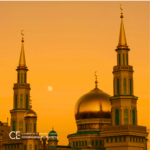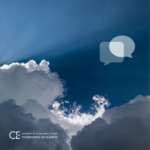Disability, Theology, Inclusion, and Interfaith Perspectives
- Delivery: Online
- Duration: 6 weeks
- Day of the week: Tuesdays
- Dates: Tuesday October 21 – Tuesday November 25
- Time: 6:30pm – 8:30pm
- Location: Online via Zoom
- Cost: $150
- Level of Interfaith Dialogue (for learners taking the Diploma in Interfaith Dialogue): Dialogue of Theological Exchange
Course Overview
This course examines how Jewish and Christian theologies address disability, exploring themes such as ritual exclusion, mental health, and community belonging. Students will analyse historical and legal models that shape theological views on disability, critique contemporary theological challenges, and consider ethical responses. Through critical engagement with texts and traditions, students will develop personal theological reflections on ability, identity, and inclusion.
SMCE3013 is an elective course within the Diploma in Interfaith Dialogue. Learners who wish to complete this program can learn more on our website. Enrolment in this course is open to all learners.
Method of Teaching
This course employs a mix of lectures, textual analysis, and discussions, encouraging critical engagement with Jewish and Christian theological perspectives on disability. You will explore historical and modern frameworks through readings, case studies, and reflective exercises, fostering inclusive and analytical theological thinking.
Learning Outcomes
In this course, learners will:
Identify key themes in Jewish and Christian disability studies.
Analyze the impact of theological perspectives on disability.
Compare Jewish and Christian approaches to disability.
Critically evaluate theological frameworks with sensitivity and depth.
About the Instructor
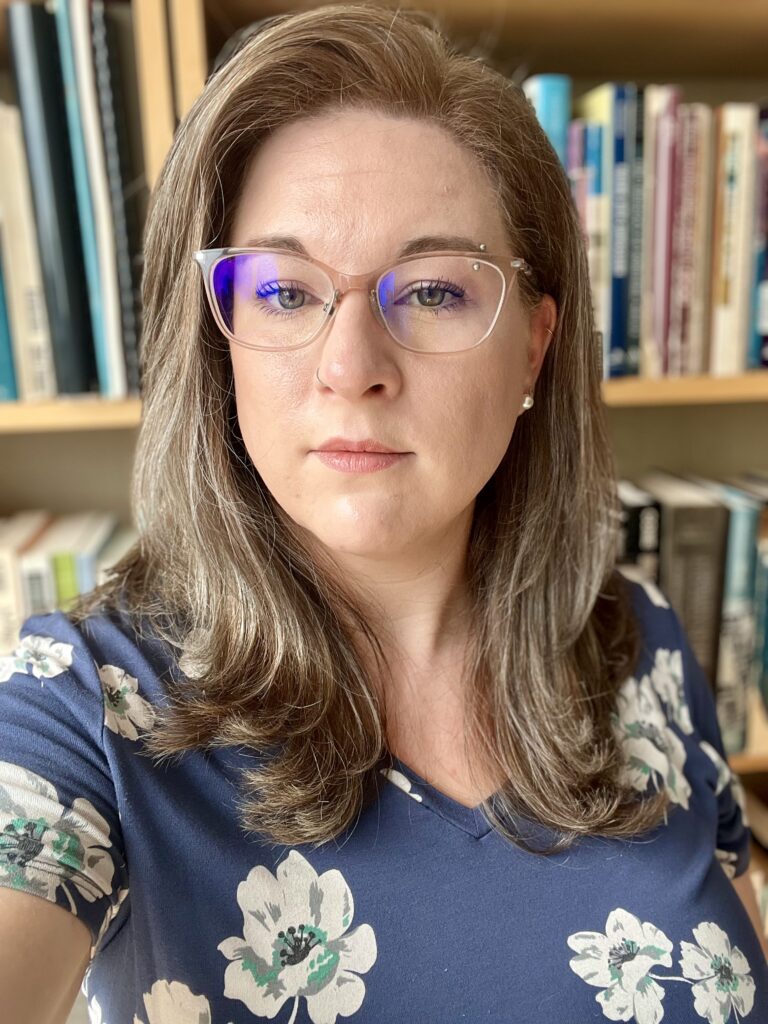
Emma CW Ceruti is a PhD candidate in theological studies at Emmanuel College in the University of Toronto, where her research explores how disabled experiences challenge dominant theological ideas, and offer transformative insights into suffering, spirituality, and justice. She holds an MA in systematic theology from Union Theological Seminary in New York, where her thesis on intellectual disability and the imago Dei was mentored by Black liberation theologian James Cone. Emma brings over a decade of experience in disability theology, interfaith engagement, and theological education, including work with the Canadian Council of Churches, the Canadian Interfaith Conversation, and the Toronto Mennonite Theological Centre. She previously served as an interfaith scholar at DePaul University, and has facilitated ecumenical and interreligious dialogue across North America and Northern Ireland. Her areas of expertise include disability theology, liberation theology, and interreligious ethics. As an educator, Emma invites you into spaces of relational learning and critical reflection, engaging both sacred texts and lived experience to explore questions of embodiment, exclusion, and belonging.
Questions?
Register Now
SMCE3013 F25 – Christianity and Judaism on Disabilities
SMCE3013 F25 Registration
Subscribe to Our Mailing List
Please sign up for the latest news about our courses, programs, workshops, special lectures, and more.
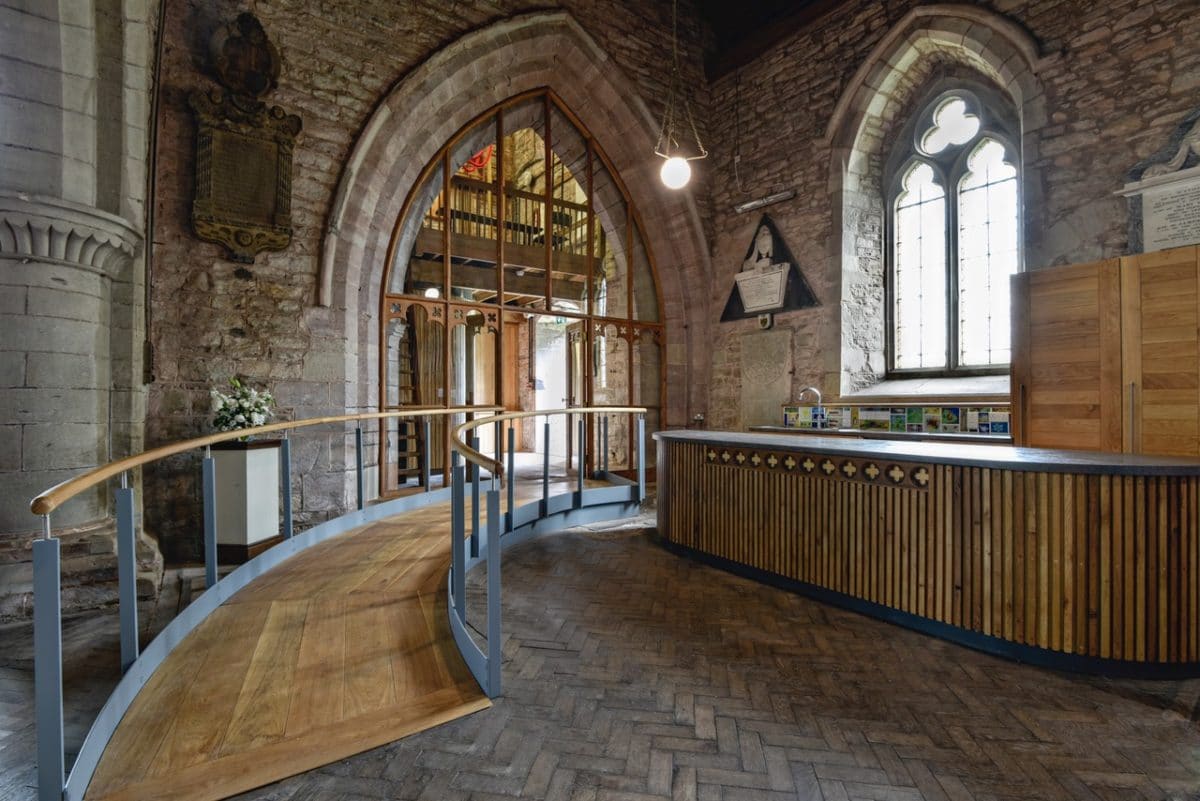
Exploring Faith and Community Across the Table
- Delivery: In-Person
- Duration: 4 weeks
- Locations, Dates & Times:
- Beth Tzedec Synagogue,1700 Bathurst St. : Wednesday, October 29th, 6:30-8:30 p.m.
- St. Basil’s Catholic Parish at the University of St. Michael’s College, 50 St. Joseph St., TUESDAY, November 4th, 6:00-9:00 p.m. (note this session will be on a Tuesday evening)
- The Ismaili Centre, 49 Wynford Dr., Wednesday, November 12, 6:00-9:00 p.m.
- Toronto United Mennonite Church, 1774 Queen St. E, Wednesday, November 19, 6:00-9:00 p.m.
- Cost: $150
- Level of Interfaith Dialogue (for learners taking the Diploma in Interfaith Dialogue): Dialogue of Life
Course Overview
Faith can inform what we eat in meaningful ways: what we eat, where and when, and how and with whom we eat can all be important ways of communicating our values and beliefs, and how we relate to each other within our communities. From how we use food in celebrating holidays, to how we bless it around the table, to the role of religious and cultural laws and global histories that shape what’s on our plates, food plays a key role in how we can learn about and experience each other’s faith traditions.
In this course, you will visit a new place of worship each week and prepare and share a meal together with the host congregation. In this way, you will learn about and experience each other’s cultures and flavours, receive hospitality, explore each other’s spaces, and hear about the ways that faith and fellowship are practised across Toronto.
Method of Teaching
SMCE3003 Faith & Food will consist of four meetings on site at different places of worship over four consecutive weeks, and weekly asynchronous learning activities.
Learners will actively participate in making and sharing meals on site, as well as touring the spaces. Lessons that bolster themes of dialogue, including short readings, videos, and reflective writing, will be used. A final culminating assignment will tie together themes and teachings from all four sites.
No foods containing pork or shellfish will be part of the menu at any site. USMC CE will make every effort to ensure that dietary needs will be accommodated, but we are unable to guarantee zero contact with certain allergens or other items (i.e., gluten, dairy, etc.), please contact ce.stmikes@utoronto.ca to inquire further.
SMCE3003 is an elective course within the Diploma in Interfaith Dialogue. Learners who wish to complete this program can learn more on our website. Enrolment in this course is open to all learners.
Learning Outcomes
In this course, learners will:
• Explore the connection between faith and food between four distinct faith traditions, including dietary laws, cultural histories, holidays and feast days, and everyday life
• Experience prayer, ritual, and cultural norms in places of worship across Toronto
• Learn recipes and practice cooking techniques tied to faith and culture
• Reflect on the role of hospitality in the practice of interfaith dialogue
Information about Host Places of Worship
Beth Tzedec Synagogue, 1700 Bathurst St.
St. Basil’s Catholic Parish at the University of St. Michael’s College, 50 St. Joseph St.
The Ismaili Centre, 49 Wynford Dr.
Toronto United Mennonite Church, 1774 Queen St. E.
About the Instructor
Ren Ito is a community organiser and educator based in Toronto. He recently completed a PhD in theological studies at the University of St. Michael’s College in the University of Toronto. With expertise in racial justice organising and education, Dr Ito’s work and research focus on how to foster solidarity across differences of race, culture, and faith. Prior to completing his PhD, he taught and advised students at the religiously diverse Emmanuel College in the Toronto School of Theology, and subsequently served regionally and nationally as a social justice coordinator at the United Church of Canada. He has also been heavily involved in community-building and activism, and co-founded a national collective for people of colour to explore faith, justice, and interracial solidarity on their own terms. His teaching style aims to draw wisdom out of students, helping them articulate their experiences in critical, theoretical terms, and building a body of knowledge to be shaped and shared in the classroom and beyond.
Questions?
Register Now
SMCE3003 F25 – Faith and Food
Subscribe to Our Mailing List
Please sign up for the latest news about our courses, programs, workshops, special lectures, and more.

Explore the Path of Buddhist Wisdom
- Delivery: Online
- Duration: 6 weeks
- Day of the week: Thursdays
- Dates: September 11 – October 16, 2025
- Time: 6:30pm – 8:30pm
- Location: Online via Zoom
- Cost: $150
- Level of Interfaith Dialogue (for learners taking the Diploma in Interfaith Dialogue): Dialogue of Theological Exchange
Course Overview
Explore the fundamental teachings and practices of Buddhism, and apply your learning to explore practices of interfaith dialogue in this introductory course. Learn about the life of the Buddha, the Four Noble Truths, the Eightfold Path, and key traditions such as Theravāda, Mahāyāna, and Vajrayāna. Through engaging discussions and readings, discover Buddhism’s historical development, ethical principles, and relevance in today’s world. Whether you are new to Buddhism or seeking a deeper understanding, this course offers a comprehensive foundation.
**SMCE3005 is an elective course within the Diploma in Interfaith Dialogue. Learners who wish to complete this program can learn more on our website. Enrolment in this course is open to all learners.
Learning Outcomes
By the end of this course, learners will be able to:
• Describe the life of the Buddha and key historical developments in Buddhism.
• Explain core Buddhist concepts, including the Four Noble Truths and the Eightfold Path.
• Analyze the differences between Theravāda, Mahāyāna, and Vajrayāna traditions.
• Apply basic Buddhist meditation and mindfulness techniques to daily life.
• Understand applications of the principles and practices of interfaith dialogue in a Buddhist context
About the Instructor
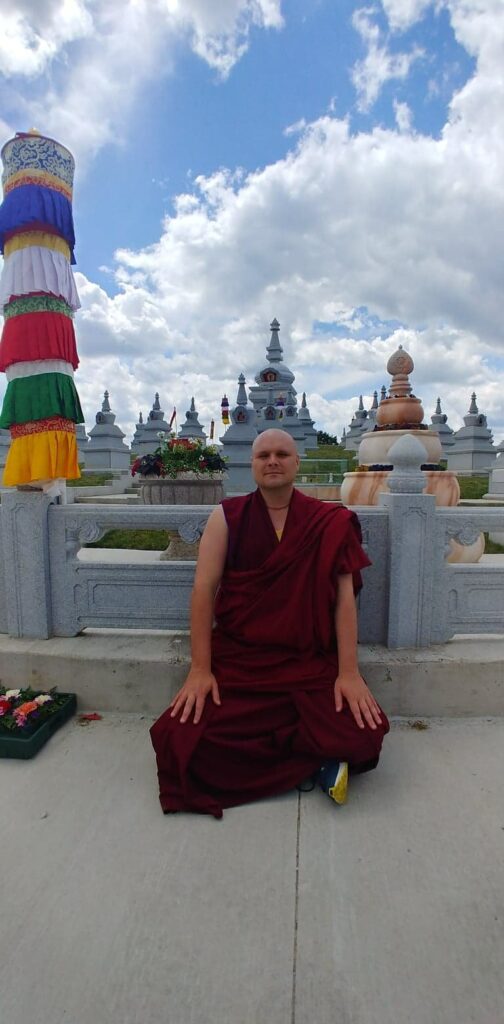
Rory Tasker, MA, has been a Buddhist monk since 2004. During his initial training, he mostly studied Tibetan Buddhism but also spent two years learning about meditation practice with Thai forest monks. In 2011, he completed the Lotsawa Rinchen Zangpo Translator Program in India and began translating Buddhist teachings from Tibetan to English for audiences in Europe, Asia, and North America.
He has continued as an interpreter since that time and currently translates for Geshe Sonam at the Lama Yeshe Ling Buddhist Centre in Burlington, Ontario. Rory holds an MA in Buddhist Studies from McMaster University and is a PhD (ABD) candidate at the University of Toronto, OISE. In his research, he examines the methods and pedagogies of Tibetan Buddhist teachers in North America. This research has been presented at several conferences, including the American Academy of Religion (AAR) annual meeting and the Collaborative for Spirituality in Education. He has been the Buddhist chaplaincy representative at McMaster University’s Spiritual Care and Learning Centre since 2021, and has a passion for spiritual care and religious dialogue.
Questions?
Register Now
SMCE3005 F25 – Introduction to Buddhism
Subscribe to Our Mailing List
Please sign up for the latest news about our courses, programs, workshops, special lectures, and more.
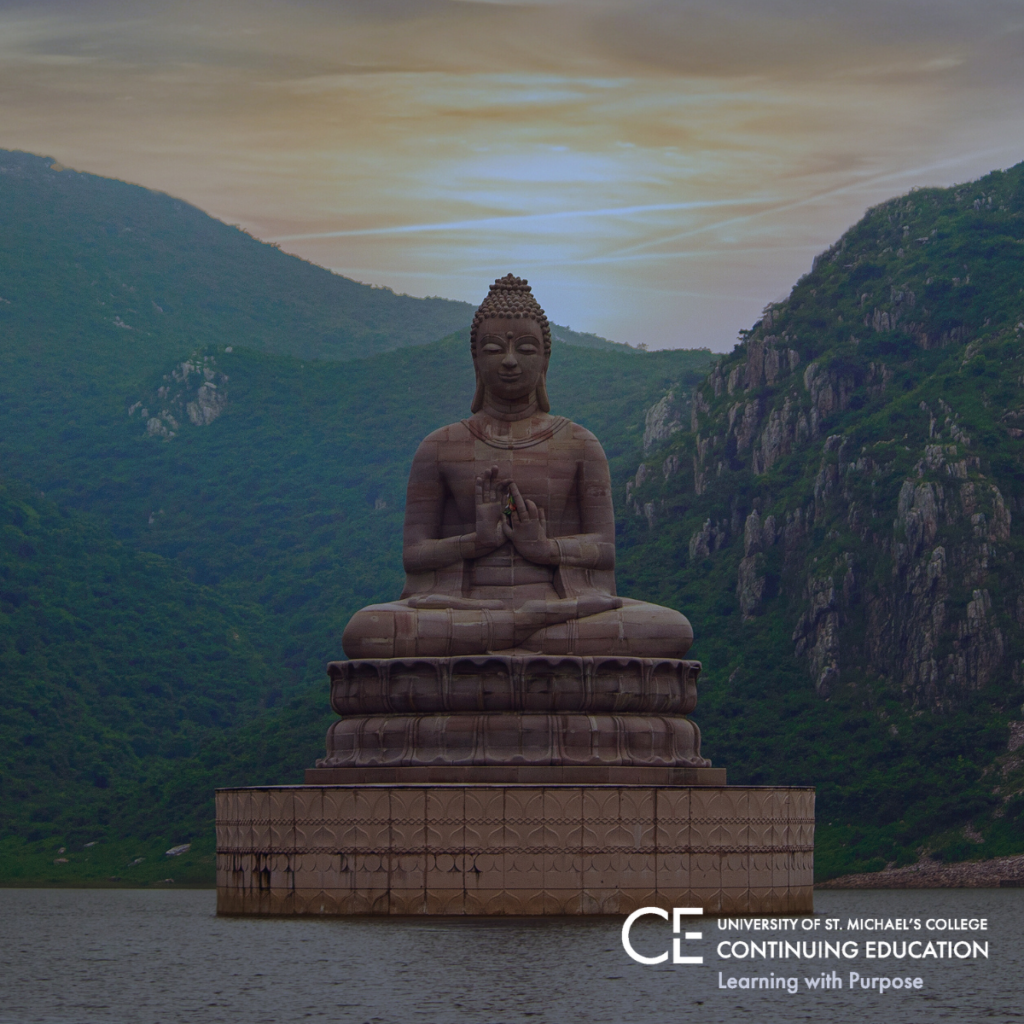
Living Justly Through Faith and Service
- Delivery: Online
- Duration: 6 weeks
- Day of the week: TBD
- Dates: TBD (Course will be offered during the Fall 2025 term, September 3 to December 3)
- Time: TBD
- Location TBD (In-person on campus at the University of St. Michael’s College in the University of Toronto)
- Cost: $150
- Level of Interfaith Dialogue (for learners taking the Diploma in Interfaith Dialogue): Dialogue of Deeds
Course Overview
Catholic Social Teaching (CST) offers a moral framework for addressing contemporary social issues. This introductory course explores the foundational principles of CST, including solidarity, human dignity, and the common good. Students will examine how CST informs responses to poverty, injustice, and environmental stewardship. Engaging discussions and reflective exercises will deepen understanding of the Catholic Church’s role in promoting social justice and ethical leadership in today’s world.
**SMCE3004 is an elective course within the Diploma in Interfaith Dialogue. Learners who wish to complete this program can learn more on our website. Enrolment in this course is open to all learners.
Learning Outcomes
By the end of this course, learners will be able to:
• Identify key principles of Catholic Social Teaching and their foundations in scripture and Catholic doctrine
• Describe applications of CST in social justice movements
• Analyze real-world issues through the lens of CST principles
• Evaluate the ethical implications of policies and actions based on CST
• Formulate reasoned arguments for addressing social issues using CST principles
About the Instructor
Instructor TBD
Questions?
SMCE3004 F25 – Introduction to Catholic Social Teaching
Subscribe to Our Mailing List
Please sign up for the latest news about our courses, programs, workshops, special lectures, and more.

Engage in Meaningful Communication Across Differences
- Delivery: In-person
- Duration: 6 weeks
- Day of the week: Tuesdays
- Dates: September 9 – October 14, 2025
- Time: 6:30pm – 8:30pm
- Location: TBD (in-person on campus at the University of St. Michael’s College)
- Cost: $150
- Level of Interfaith Dialogue (for learners taking the Diploma in Interfaith Dialogue): Core Course
Course Overview
This foundational course provides a practical introduction to interfaith dialogue, equipping learners with tools to engage in meaningful conversations across religious and cultural differences. Learners will explore the four levels of dialogue — the dialogue of life, the dialogue of action, the dialogue of theological exchange, and the dialogue of religious experience. Emphasising real-world application, this course fosters skills in active listening, and conflict transformation. By the end of the course, you will more confidently navigate interfaith conversations, fostering understanding and collaboration in your communities and professional settings.
**SMCE3000 is the foundational course for the Diploma in Interfaith Dialogue. It is recommended that learners who wish to complete this Diploma program take this course first.
Micro Credential
Learners who successfully complete SMCE3000 will receive a micro credential for this course.
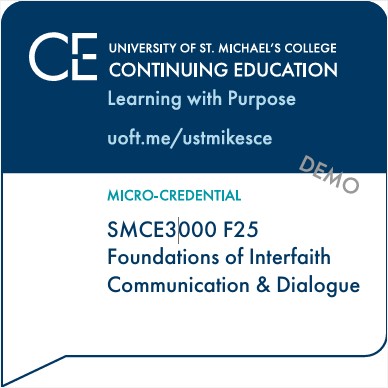
USMC CE is proud to offer micro-credentials—digital, verifiable credentials that you own and can share on your résumé, LinkedIn profile, and more. Micro-credentials are certifications of assessed learning that focus on specific, relevant skills and competencies. These programs are designed for professionals seeking rapid, practical training to meet today’s social and environmental challenges. Whether you’re advancing your career, or deepening your expertise, our micro-credentials deliver focused learning backed by real-world relevance, and academic excellence.
Method of Teaching
This course will be delivered in person on campus at the University of St. Michael’s College in the University of Toronto. Interactive discussions, case-based learning, and reflection will be used to practise the application of tools for effective interfaith dialogue practice.
Learning Outcomes
- Define interfaith dialogue and its significance in today’s world
- Identify and apply the four levels of interreligious dialogue
- Cultivate greater personal openness to, and tools for, interreligious dialogue and engagement, and communicating effectively across difference
- Practice dialogue techniques through structured exercises and real-world scenarios
- Reflect critically on lived examples of interreligious dialogue and collaboration in Canada, the Greater Toronto Area, and students’ own local contexts
- Create a personal or professional action plan for implementing interfaith dialogue skills
About the Instructor

Mia Theocharis is the director of advocacy, emerging campuses at Hillel Ontario, where she leads strategic initiatives to support Jewish students and allies on campuses without a formal Hillel presence. In this role, she develops student leadership pipelines, designs targeted programming, and works closely with university administrators and EDI offices to address student concerns. With nearly a decade of experience in higher education—as a researcher, educator, and advocate—she is deeply committed to bridging scholarly insight with real-world impact. Mia is also a PhD candidate in theological studies at the University of St. Michael’s College in the University of Toronto. Her research explores Jewish–Christian relations from the 19th to 21st centuries, with particular attention to antisemitism, the Holocaust, and the Second Vatican Council declaration Nostra aetate. Through historical methodology, critical analysis, and interdisciplinary inquiry, her work aims to confront antisemitism, foster interreligious and interideological understanding, and ensure the lessons of the past inform our present. Her dissertation, supported by a prestigious SSHRC Doctoral Fellowship, examines the development and influence of Canadian Catholic theologian Gregory Baum’s theological thought on Jewish–Christian relations in Canada and internationally. In the classroom, Mia cultivates inclusive spaces where students grapple with complex histories, reflect on their contemporary relevance, and engage in interfaith dialogue as a vital practice for understanding others as they understand themselves—grounded in empathy, humility, and intellectual integrity.
Questions?
Register Now
SMCE3000 F25: Foundations of Interfaith Communication and Dialogue
"*" indicates required fields
Subscribe to Our Mailing List
Please sign up for the latest news about our courses, programs, workshops, special lectures, and more.
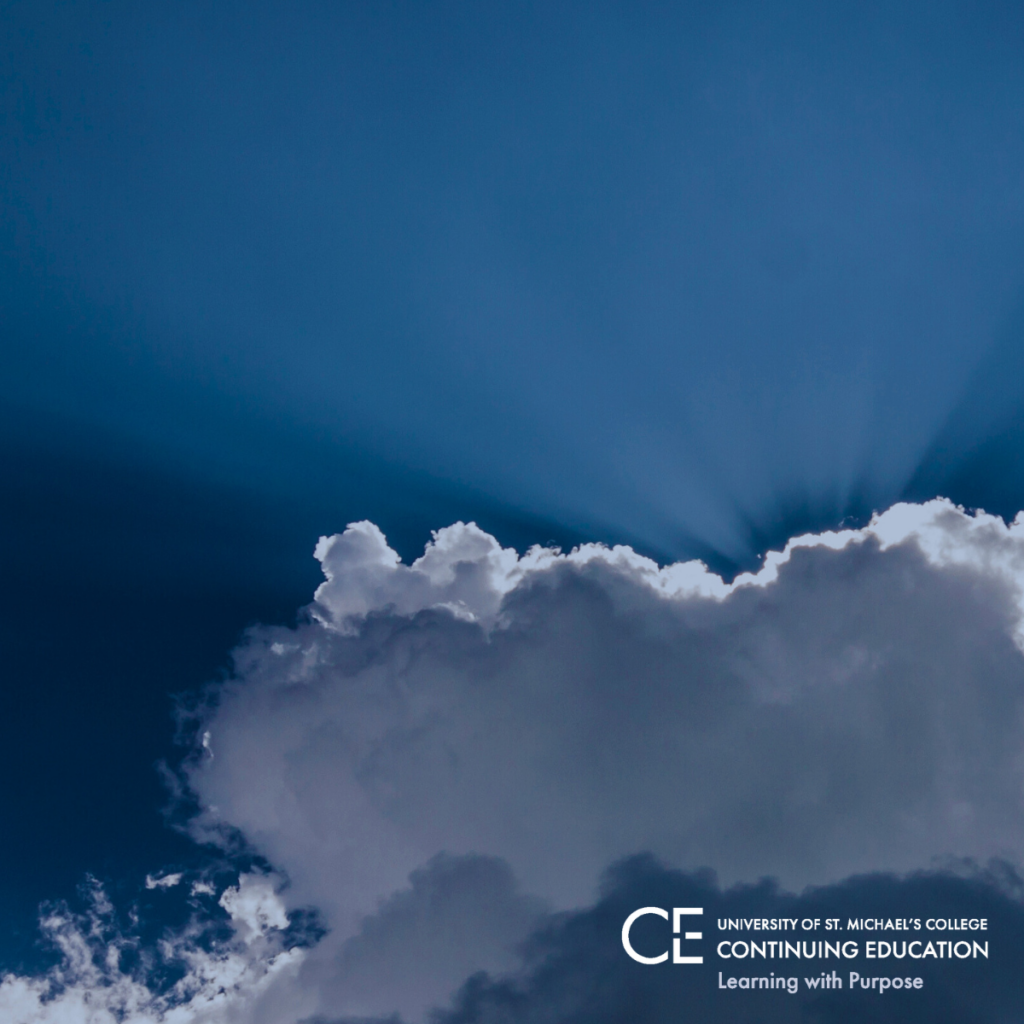
Thank you for your interest in this course. This course is not currently open for enrolment. Please let us know if you are interested in this course and subscribe to our mailing list to be the first to know about upcoming offerings.
Explore the Beliefs, Texts, and Practices of Hinduism
- Duration: 6 weeks
- Day(s): Thursdays
- Date: Thursday, February 20 to Thursday, March 27
- Time: 6:30 pm – 8:30 pm
- Location: Online, via Zoom
- Fees: $150
- Instructor: Dr. Mansi Handa

Course Overview
An Introduction to Hinduism provides an exploration of the foundational beliefs, texts, and practices of Hinduism, one of the world’s oldest and most diverse religions. This course delves into the historical origins, philosophical principles, and spiritual traditions that have shaped Hinduism over millennia. Students will engage with the religion’s diverse philosophies, rituals, and cultural expressions, while also examining its relevance in modern contexts, including its role in global interfaith dialogue. Through analytical studies, interactive discussions, and reflective practices, students will gain a nuanced understanding of Hinduism as both a historical and living tradition that continues to influence millions worldwide.
Instructor
Dr. Mansi Handa is a professor of Philosophy and Liberal Arts. Originally from India, she brings a deep understanding of Hinduism, Indian philosophy, and the philosophy of religion. Dr. Handa earned her PhD in Philosophy from the University of Delhi, with her research focusing on ethical issues related to climate change. With over a decade of experience teaching courses on religion, philosophy, and ethics. She specializes in exploring intersections between faith, reason, and cultural traditions.
Dr. Handa has published on topics such as religious mysticism and environmental justice and has presented her work at international forums, including the World Congress of Philosophy. Her teaching emphasizes critical thinking, cultural context, and student engagement, fostering an inclusive environment for exploring diverse philosophical traditions. Passionate about bridging global perspectives, she aims to connect philosophical insights to contemporary challenges, enriching students’ understanding of religion and ethics.
Method of Teaching
The course adopts a variety of interactive and analytical teaching methods designed to cater to diverse learning styles. Weekly lectures will provide foundational knowledge and historical context, while class discussions will encourage critical thinking and collaborative exploration of ideas. Reflective activities will allow students to connect theoretical concepts with real-world applications. Additionally, multimedia resources, including videos and textual analysis of sacred texts like the Bhagavad Gita, Ramayana, and Upanishads, will enrich the learning experience. This multifaceted approach ensures that students not only learn about Hinduism but also develop an appreciation for its cultural and spiritual significance.
Student Learning Objectives
Students will:
- Explore the historical origins and development of Hinduism.
- Understand key concepts such as dharma, karma, moksha, and samsara.
- Analyze Hinduism’s sacred texts and their teachings.
- Discuss rituals, festivals, and cultural expressions.
- Examine Hinduism’s role in art, philosophy, and global contexts.
Student Experience
Introduction to Hinduism is suitable for individuals with varied educational or professional backgrounds who are interested in learning about Hindu traditions.
Questions?
Registration is now closed. Thank you.
Previously Offered Related Courses
SMD 203 – Islam 101
Diploma in Interfaith Dialogue
SMCE Course Enquiry
Discover the Richness of Islamic Tradition
- Duration: 4 weeks
- Day(s): Wednesdays
- Date: Wednesday, October 9 to Wednesday, October 30, 2024
- Time: 6:00 pm-9:00 pm
- Location: Online, via Zoom
- Fees: $150
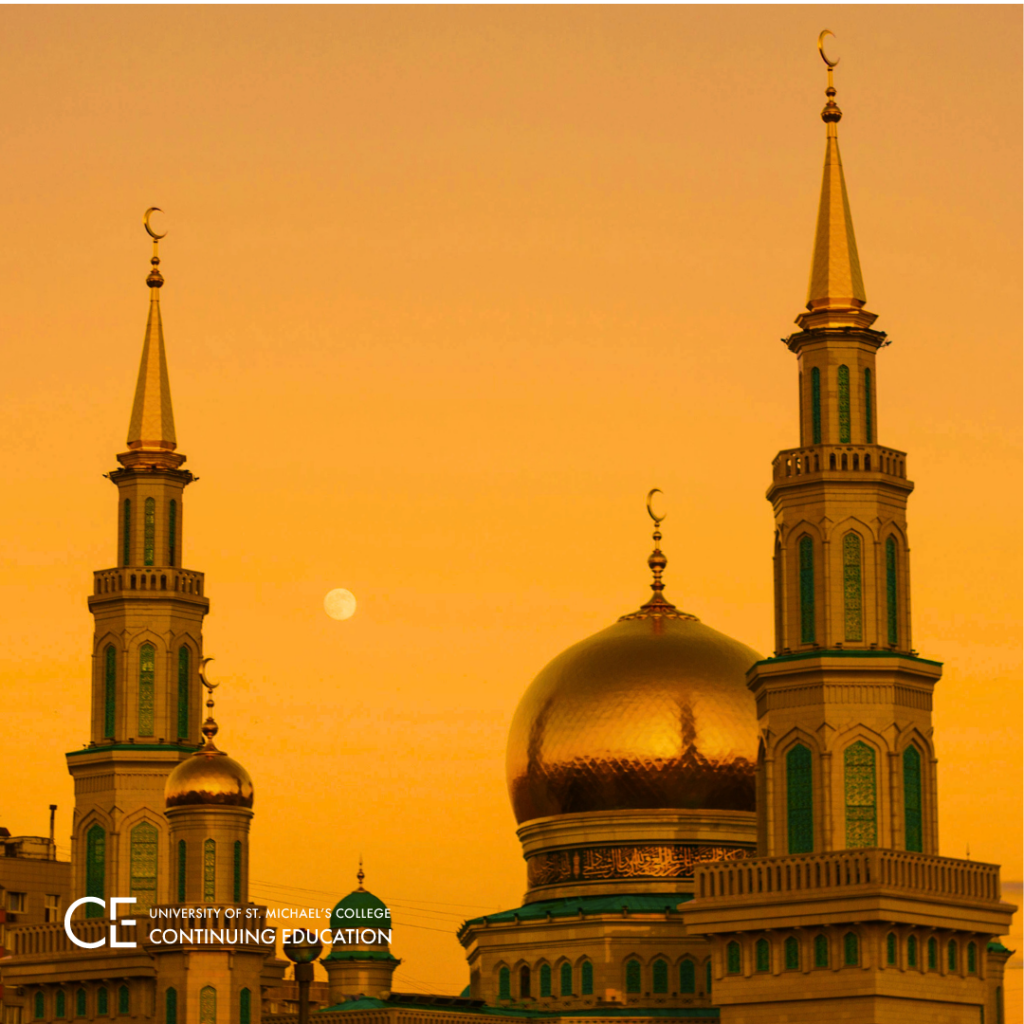
Course Overview
“Islam 101” explores the basics, traditions, and values of the religion of Islam and the Muslim community. This course provides a platform to discuss and reflect on different aspects of Islamic faith and civilization.
Learning Outcomes/Objectives:
1. The “Islam 101” course teaches respect for people’s diverse religions, cultures, and backgrounds.
2. It explores diverse cultural and religious traditions of the Muslim community.
3. It helps students understand common values of Abrahamic faiths and builds relationships between diverse traditions.
4. It provides a platform to discuss and reflect on different aspects of Islamic faith and civilization.
5. It provides responses to common questions about Islamic faith and contemporary issues.
Student Experience
The “Islam 101” course is suitable for students with different educational levels or professional backgrounds, who are interested in learning more about diverse cultures and traditions of the Islamic faith and the Muslim community.
Course Outline
Week 1:
Introduction: Basic Understanding
- Meanings of Islam
- Pillars of Islam
- Articles of Faith
- The Quran
- Prophet Muhammad
Week 2:
Islamic Law
- Sources of Islamic Law:
- Primary Sources: Quran, Traditions of Prophet Muhammad, and Consensus of Muslim scholars
- Secondary Sources: Analogy, Consideration of the Public Interest of the Community, Prior Revelations to Islam, People’s Cultures, etc.
- Islamic Schools of Thought
- Reasons and Ethics of Juristic Differences in Islam
Week 3:
Universal Values of Islam
- Sacredness of People’s Lives, Properties, and Honor
- Freedom
- Justice
- Human Respect and Dignity
- Care for the Environment
- Equality and Equity
- Security and Safety
- Mercy for All
- Human Fraternity
Week 4:
Islamic Way of Life
- Realistic Discourse
- Flexibility and Adaptation
- Peaceful Co-existence
- Work for the Common Good
- Community Involvement
- Muslims in Canada
About the Instructor
Dr. Wael Shehab holds a Ph.D. in Islamic Studies from Al-Azhar University and brings over two decades of experience in the area of the proposed course.
Related Courses
SMD 102 – Dialogues: Principles and Practices
Diploma in Interfaith Dialogue
Thank you for your interest in SMD 203 – Islam 101
Unfortunately, the course you have selected is currently not open for enrolment. Please request a notification below so that we may promptly notify you when enrolment opens.
SMCE Course Enquiry
Questions?
Thank you for your interest in this course. This course is not currently open for enrolment. Please let us know if you are interested in this course and subscribe to our mailing list to be the first to know about upcoming offerings.
Engage in the Art of Interfaith Dialogue
- Duration: 4 weeks
- Day(s): Mondays
- Dates:
- Monday, October 7
- **No Class Monday, October 14**
- Monday, October 21
- **No Class Monday, October 28**
- Monday, November 4
- Monday, November 11
- Time: 6:00 pm-9:00 pm
- Location: Online, via Zoom
- Fees: $150
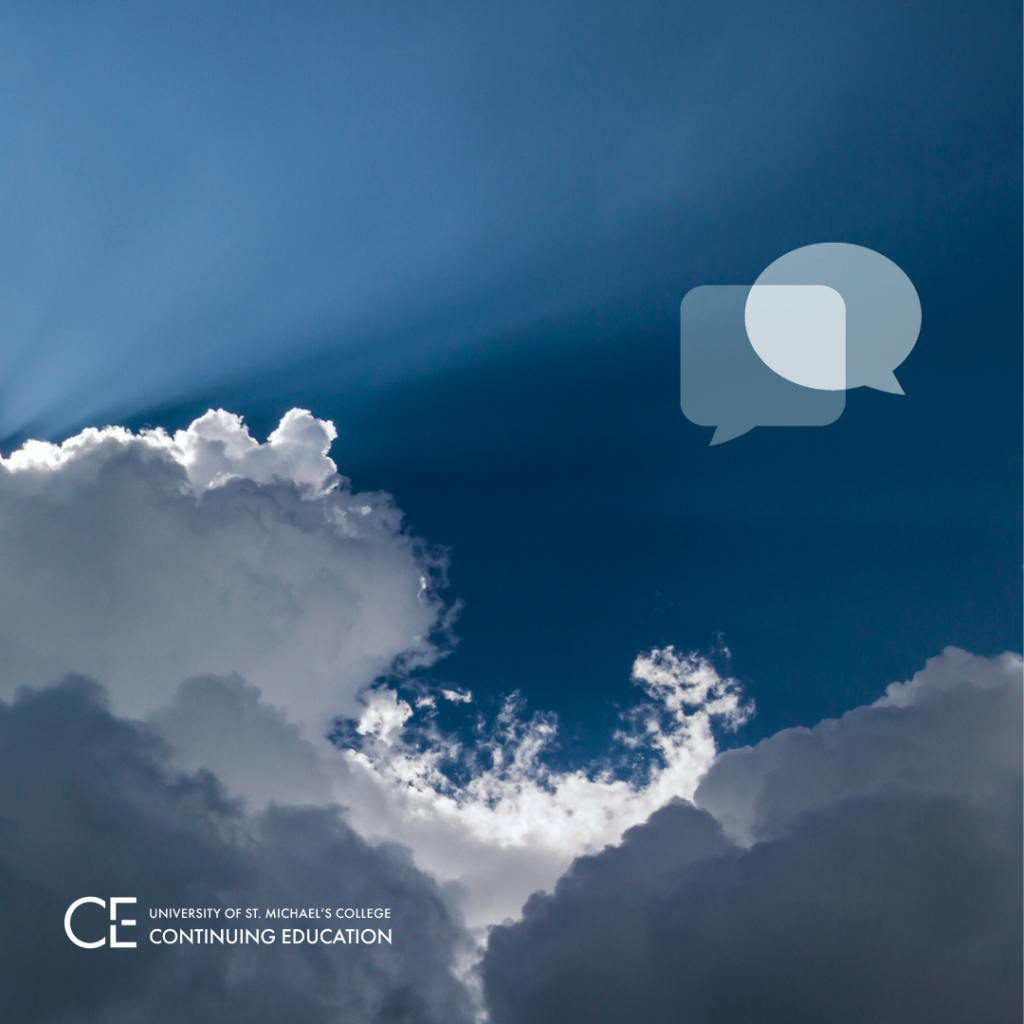
Course Overview
In this course, we will explore various contemporary approaches to interreligious dialogue and engagement, with a special emphasis on selected examples of such dialogue in Canada and the Greater Toronto Area. This includes the four Modes of Dialogue, as defined by the Pontifical Council for Interreligious Dialogue (PCID), and Dr. Leonard Swidler’s Decalogue of Dialogue. Students will have an opportunity to reflect on the potential of interreligious dialogue to foster mutual respect, practices of humility and hospitality, and collaboration on social issues.
About the Instructor
Instructor Fr. Prakash Anthony Lohale, OP, is the Director of the Office for Interreligious Dialogue at the Archdiocese of Toronto, and an experienced facilitator in interreligious dialogue, fostering mutual respect and collaboration on social issues.
Learning Outcomes
Through their participation in this course, students will:
- Identify and describe different contemporary models for understanding religious diversity, including but not limited to the relationship(s) between Christianity and other religious paths.
- Reflect critically on lived examples of interreligious dialogue and collaboration in Canada, the Greater Toronto Area, and students’ own local contexts.
- Cultivate greater personal openness to, and tools for, interreligious dialogue and engagement.
Related Courses
SMD 203 – Islam 101
Diploma in Interfaith Dialogue
Questions?
Enrolment is not available for this course at this time.
Please subscribe to our mailing list for the latest news about our courses, programs, workshops, special lectures, and more.
SMCE Course Enquiry
Bridge Beliefs, Build Understanding
What could be possible if we understood each other better? The Diploma in Interfaith Dialogue from the University of St. Michael’s College Continuing Education Division will equip you to engage in meaningful, respectful interfaith conversations. You’ll explore diverse religious traditions, practices, spiritualities, and texts through experiential learning, dialogue techniques, and a capstone project. Gain the skills to foster understanding, connection, and peace across faith communities in your everyday life.
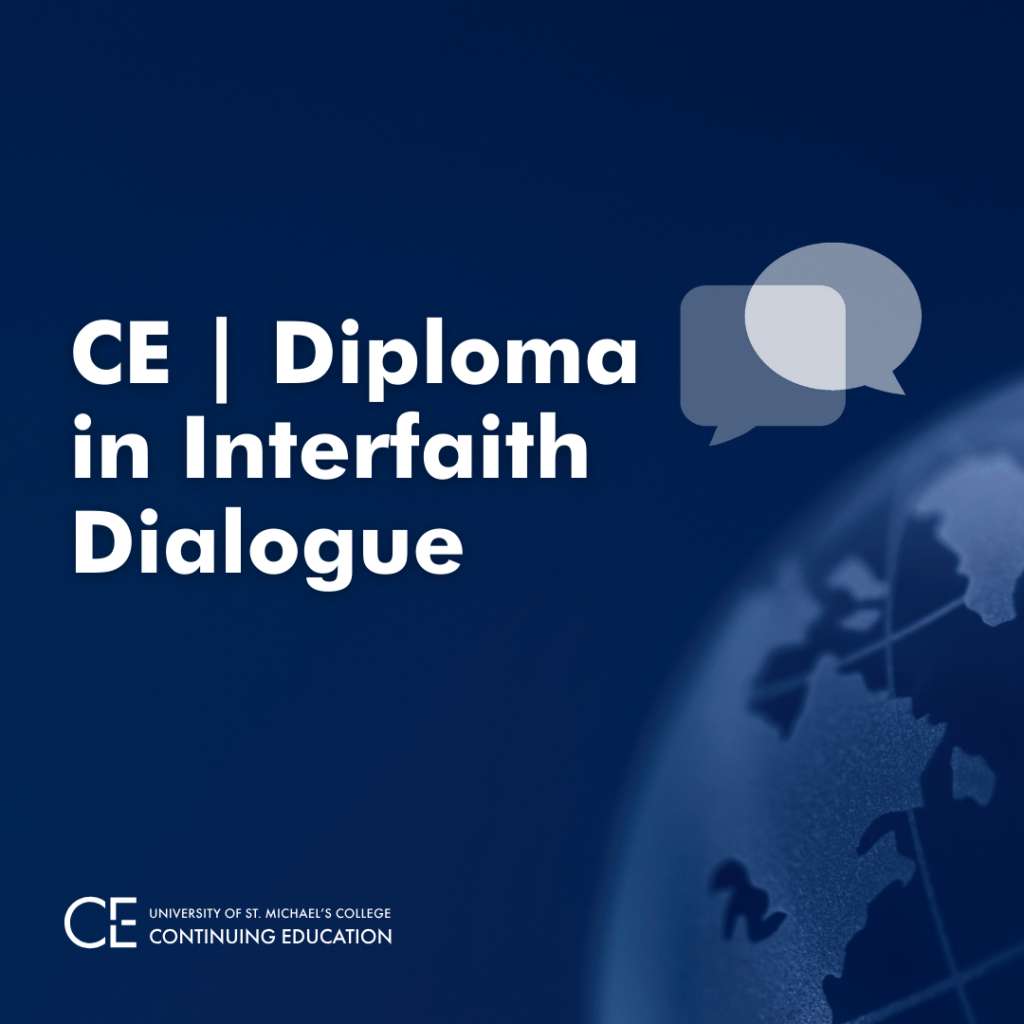
Diploma in Interfaith Dialogue Overview
The Diploma in Interfaith Dialogue focuses on building confidence and skills for effective communication and encounters across differences. The mandatory core course, Foundations of Interfaith Communication & Dialogue, will introduce you to the tools and techniques for open, curious, and non-judgmental communication—skills that will be central to every elective course. This course also endows you with a micro-credential upon successful completion.
Elective courses within the Diploma will be structured around the Four Levels of Interfaith Dialogue, ensuring that you experience diverse ways of encountering and appreciating different faith traditions:
Dialogue of Life – Courses in this category will explore how people of different faiths coexist in daily life, emphasizing relationships, shared experiences, and cultural interaction. You will reflect on personal experiences and examine case studies of interfaith communities.
Dialogue of Action (Deeds) – These courses will focus on current examples and opportunities for interfaith collaboration in areas such as social justice, environmental stewardship, and community service. You will examine real-world initiatives, both internationally and in Canada, where faith groups work together for the common good.
Dialogue of Religious Experience – You will engage with the spirituality and faith practices of different traditions, including meditation, prayer, rituals, and sacred objects and places. Courses may include site visits, guest speakers, or experiential activities to deepen appreciation for the commonalities, differences, and distinctive claims of various religions.
Dialogue of Theological Exchange – You will explore core beliefs, texts, doctrines, and worldviews of various religious traditions. You will learn to compare them respectfully and appreciate how religious convictions shape self-understanding, relationships with others, and our sense of meaning in the world.
To earn the diploma, you must complete at least one elective from each level.
In the capstone project, you will apply the principles of interfaith dialogue to a real-world issue of your choice. You will demonstrate your ability to foster mutual understanding, address societal challenges, and propose actionable solutions through research, reflection, and engagement with people of diverse faith perspectives and spiritualities
Diploma Outcomes
By the end of the program, you will be able to:
- Demonstrate Interreligious Understanding – Analyze key beliefs, practices, and historical developments of major religious traditions, recognizing commonalities and differences.
- Engage in Meaningful and Pragmatic Interfaith Dialogue – Apply effective communication strategies to engage respectfully, with curiosity and without judgement, in discussions and encounters across religious traditions, fostering mutual understanding and collaboration.
- Critically Reflect on Personal and Social Impacts of Religion – Evaluate the role of religion in shaping individual identity, societal values, artistic expression, and global issues
- Apply Interfaith Perspectives to Social Action – Demonstrate an understanding of the value of promoting interfaith cooperation in areas such as social justice, community building, and environmental sustainability.
- Synthesize Theological and Experiential Learning – Integrate your lived experience with faith traditions and insights to form a personal, nuanced, and applicable perspective on interfaith relations in your own milieu.
Curious to know what this learning looks like in action? Read the reflection of 2025 graduate Simon Burke here!
Admission Requirements
The Diploma in Interfaith Dialogue is an open-enrolment, non-degree credit program offered by Continuing Education. There are no academic or professional prerequisites. Learners of all faith traditions—or none—are welcome and encouraged to enrol.
To begin, choose a course and enrol. We recommend starting with SMCE3000 Foundations of Interfaith Communication & Dialogue, but courses may be taken in any order. The maximum timeframe for completing the Diploma requirements is 3 years.
To complete the diploma, you must:
Complete a mandatory core course – Take SMCE3000 Foundations of Interfaith Communication & Dialogue to gain foundational skills in interfaith dialogue.
Take 8 Elective Courses – Select from various topics across the four Levels of Interfaith Dialogue (Life, Deeds, Religious Experience, Theological Exchange), ensuring at least one course from each level, and
Complete the Capstone Course – Engage in a final project applying interfaith dialogue principles through research, creative work, or community engagement.
Note: If you completed SMD102 Dialogue Principles and Practices before Fall 2025, it fulfills the core course requirement. Learners who started before Fall 2025 may complete the program by either:
- taking the capstone, or
- taking the core course plus nine electives (including prior courses).
Fees
Each course within the program costs $150.
This program is supported by a significant financial endowment from Scarboro Foreign Missions (SFM), and extends the charism of the SFM Fathers in interfaith dialogue. SFM has been deeply committed to interfaith dialogue for many decades. This Diploma in Interfaith Dialogue situates the legacy of the Scarboro Foreign Mission to create an educational opportunity for all who wish to understand the religious ideals and values of their neighbours and even themselves within Continuing Education at USMC, where our mission, vision, and values, and adult learning pedagogies will support it.
Courses
To get started in the Diploma in Interfaith Dialogue, choose a course and enroll.
You may choose to register for individual courses without committing to the full Diploma program.
Each academic year, courses will be offered across Levels of Dialogue, both in-person and online, to ensure that you can meet the program’s breadth requirements.
Course Schedule, Fall 2025 to Fall 2026
| TERM | Course Name | Level of Dialogue | Modality |
| Fall 2025 | SMCE3000 Foundations of Interfaith Communication & Dialogue | N/A (Core Course) | In-Person |
| Fall 2025 | SMCE3003 Faith & Food | Dialogue of Life | In-Person |
| Fall 2025 | SMCE3005 Introduction to Buddhism | Dialogue of Theological Exchange | Online |
| Fall 2025 | SMCE3013 Christianity and Judaism on Disabilities | Dialogue of Theological Exchange | Online |
| Winter 2026 | SMCE3000 Foundations of Interfaith Communication & Dialogue | N/A (Core Course) | Online |
| Winter 2026 | SMCE3015 Reading (and Misreading) the Bible and the Torah | Dialogue of Theological Exchange | Online |
| Winter 2026 | SMCE3007 “Called to be Peacemakers”: Peace, Conflict Resolution and Reconciliation | Dialogue of Deeds | Online |
| Winter 2026 | SMCE3008 Eco-Spiritualities | Dialogue of Life | Online |
| Spring-Summer 2026 | SMCE3014 Messianic Faiths | Dialogue of Theological Exchange | Online |
| Spring-Summer 2026 | SMCE3016 Sacred and Ritual Spaces | Dialogue of Theological Exchange | Online |
| Spring-Summer 2026 | SMCE3004 Introduction to Catholic Social Teaching | Dialogue of Deeds | |
| Fall 2026 | SMCE3000 Foundations of Interfaith Communication & Dialogue | N/A (Core Course) | In-Person |
| Fall 2026 | SMCE3003 Faith & Food | Dialogue of Life | In-Person |
| Fall 2026 | SMCE3011 Law & Religion | Dialogue of Theological Exchange | Online |
| Fall 2026 | SMCE3012 Accompaniment: Walking Together in Faith | Dialogue of Religious Experience | In-Person |
Please note: Programming is subject to change
Questions?
Land Acknowledgement
We wish to acknowledge this land on which the University of St. Michael’s College operates. For thousands of years it has been the traditional land of the Huron-Wendat, the Seneca, and the Mississaugas of the Credit. Today, this meeting place is still the home to many Indigenous people from across Turtle Island and we are grateful to have the opportunity to work on this land.

